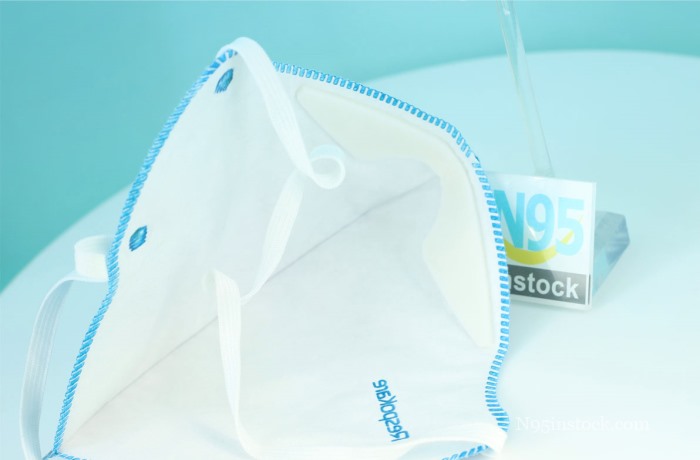While different types of respirator masks are available, with varying uses, N95 masks are most appropriate in the current context of protecting against Covid-19. When appropriately fitted, N95 respirators are capable of filtering out a greater number of airborne particles than masks that are designed to cover your face. Like a 3-layer, single-use mask, the N95 respirator has several layers, but its main feature is that it is fitted in a more streamlined manner on the face, thus creating greater protection for wearers.
The fit is part of what makes N95 masks so effective (healthcare workers are fitted separately to their N95 respirators). Because N95 masks are designed for a narrow fit to maximize protection, they are uncomfortable to wear over a prolonged period.
If you wish to wear an N95 mask, but only KN95s are available, the KN95 masks are slightly more difficult to breath through, but they provide sufficient protection. Surgical masks are good to help keep others safe from your germs and viruses, but you may be able to better protect yourself with an N95 mask. It is important to note surgical masks, sometimes called facemasks, are not the same thing as respirators, and are not designed or approved to protect you against particles in the air.
Surgical masks are designed to provide barrier protection from droplets, however, they are not regulated to filter particles effectively, and do not provide a sufficient seal on the wearers face for relieving breathing. A type of personal protective equipment (PPE), the N95 respirator is thicker than the surgical mask, and has been designed to provide very tight fits around the face in order to provide effective airborne particle filtration. The most specialized mask, known as the N95 respirator, is said to be the gold standard of protection against the pandemic, more effective than surgical masks. Recent studies show a properly fitted N95 was found to protect 75 times better than surgical masks.


Unlike a three-layer surgical mask or fabric face shield, the bands on an N95 are designed to loop over the back of your head, so as long as you are wearing them tightly, they will keep them better. The major differences that most people notice when wearing KN95s over N95s is in the way that the masks are fitted, as well as in their fit. Even a KN95 mask that does not meet the NIOSH standards for filtering effectiveness is likely to be still more protective than a standard surgical mask and fabric mask – if it offers a close seal with no gaps. Many FFR masks that were available to purchase during the COVID-19 pandemic did not provide the level of fit and filtration similar to those in the N95 masks, and were unacceptable for use in health care settings.
During the ongoing COVID-19 pandemic, personal protective equipment (PPE) supply chains were heavily disrupted, with several products, especially surgical-grade N95-filtered facepiece respirators (FFR; masks), being unavailable. From the beginning of the coronavirus pandemic, Mike Bowens company, Prestige Ameritech, and most other manufacturers and distributors prioritized supply to healthcare workers, which he says is still lacking sufficient masks and other PPE supplies for healthcare workers.

For more information about N95 or KN95 masks, welcome to visit n95wholesale (https://n95wholesale.com/)

